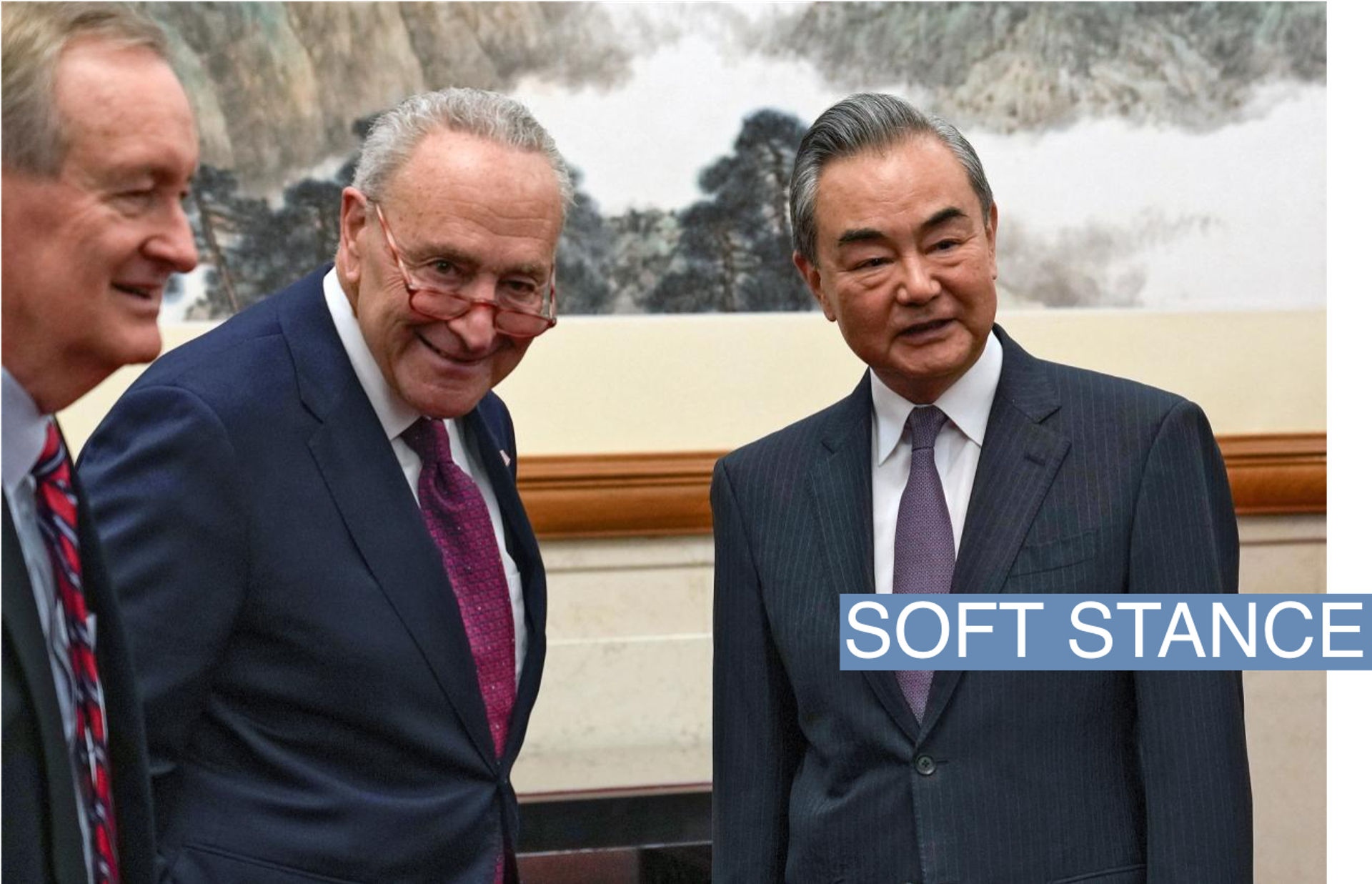The News
China has so far taken a soft stance on the Israel-Hamas war, focusing on Israel’s long-standing blockade of the Gaza strip.
China’s foreign ministry said in a statement over the weekend that “the fundamental way out of the conflict lies in implementing the two-state solution and establishing an independent State of Palestine.” The statement has angered Israeli officials, who expect a harsher condemnation of Hamas’s attack.
The relative silence from Beijing prompted U.S. Senate Majority Leader Chuck Schumer to call for more support for Israel from Xi Jinping.
SIGNALS
The unwillingness to call out Hamas directly may stem from China’s fear of alienating friends in the developing world, political scientist Wen-Ti Sung told Nikkei. Beijing “doesn’t want to be seen as betraying its developing world friends — especially when that friend is engaged in hostilities against a leading U.S. ally, namely Israel.”
Coverage from Chinese state media has focused on Israel’s retaliation against Hamas. So far, the media has avoided showing footage of scenes from the Israeli side of the border, or reporting on Hamas militants’ attack against hundreds of music festival attendees, Jordan Schneider writes in his China Talk newsletter. The segment which ran on news channel CCTV “creates the airy illusion that Israel just starting bombing Gaza to smithereens out of nowhere for no particular reason (and targeting emergency vehicles) because that’s what Israel does.”
Support for Palestinians is widespread on Chinese social media. On Weibo, antisemitic messages have surged. While the heavy moderation of the social media app means its not necessarily reflective of Chinese citizens’ sentiments, the views expressed there are crucial to shaping China’s preferred narrative, Matthew Loh writes for Business Insider. Users are directing their anger at Israel as well at the U.S. As Loh notes: “Blaming the US for war is a common theme on Weibo, where users see Washington as a cabal of Imperialist warmongers that has a hand in all world conflicts — in line with propaganda from the Chinese Communist Party.”


